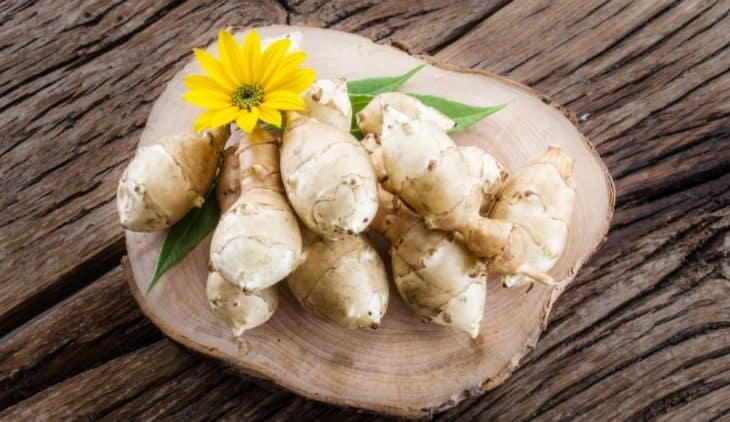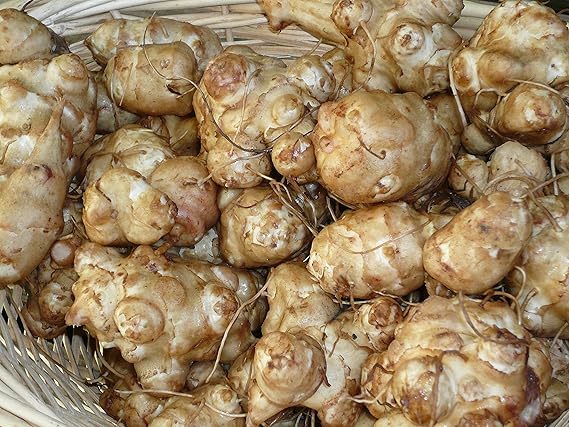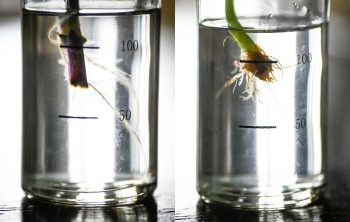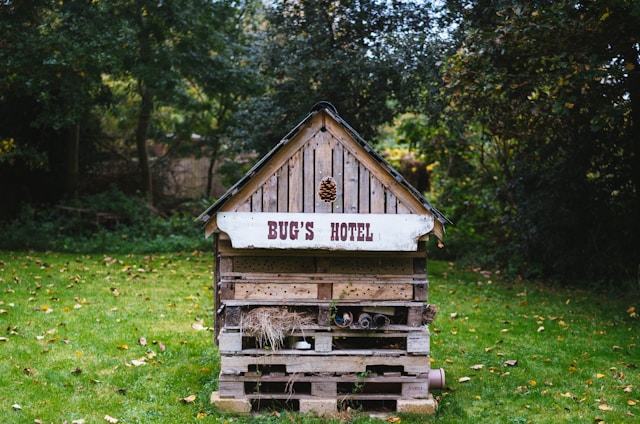Though they may not be as popular as other root vegetables, Jerusalem Artichokes are commonly found throughout North America. If you plan to grow them, you will want to know your Jerusalem Artichoke growing zone. This will help ensure you live in the right environment that will allow them to flourish.
Fortunately, the great thing about Jerusalem Artichokes is that they have the capability to grow in many different areas. In fact, they grow so easily that they are almost considered invasive in some areas. They can be a great plant to grow for gardeners of all experience levels.
What Are Jerusalem Artichokes?
Despite their name, Jerusalem Artichokes are actually native to North America, not Jerusalem and they have no relation to artichokes. They are a type of root vegetable that belongs to the sunflower family. They are also called sunchokes and they are typically prepared like a starchy vegetable.
Sunchokes have a white flesh that is nutty, sweet, and crunchy, similar to chestnuts when raw. When you bake them in their skins, they become similar to potatoes while having a mild taste like artichoke hearts.
You can eat sunchokes either raw or cooked. However, for some people, they can cause excess gas due to the fact they store energy as inulin.
During the summer, they sport tall, yellow flowers. They can grow to be 6-10 feet tall and 3-5 feet wide. Sunchokes are a great plant to grow for novice gardeners.
There are a few different varieties of Jerusalem Artichokes, with French Mammoth White, Golden Nugget, and Fuseau being the most common. These varieties are all great for growing in your garden.
French Mammoth White sunchokes are very popular and produce good-sized, white tubers that are knobby. The Golden Nugget variety has a tapering tuber and a flavor that is smooth. The Fuseau variety is popular for producing large, smooth tubers early on that exhibit somewhat of a smoky flavor.
Jerusalem Artichoke Growing Zones
Due to their adaptability and hardiness, Jerusalem Artichokes are able to grow in a variety of areas. They do well when grown in Zones 3-9. The artichoke zone is can vary depending on where you live.
Since they do best in cooler environments, it is not recommended to grow them in zone nine and above. However, you can still have success growing them in these zones, but there is no guarantee that they will thrive.
Jerusalem Artichokes due best in full sun or partial shade. Ideally, you want them to get at least six hours of sun a day. You can research to make sure where you live is a Jerusalem Artichoke growing zone.

They can grow in just about every
Though they are capable of handling drought, they do best with at least one weekly watering. Their ideal temperature for growing is between 65 to 90 degrees Fahrenheit.
How To Plant Jerusalem Artichokes
The ideal time to plant your sunchoke tubers is in early spring. You should plant them when the
You should space the tubers 12 to 18 inches apart, around five inches deep. The eyes of the tubers should be facing upwards and they should weigh at least 1.75 ounces in order to have a good harvest. Your soil should be damp, but you do not want it to be wet.
Where to Get Jerusalem Artichoke Tubers for Planting
You can purchase Jerusalem Artichoke tubers at most gardening stores. In addition, they are also readily available online as well, which is great if you don’t live close to a gardening store. They are often very affordable to buy and you can purchase them in bulk quantities.
5 Tubers Jerusalem Artichokes AKA Sunchokes, Sunroot for Planting or Eating-None
When To Harvest Them
The best time to harvest Jerusalem Artichokes is between October to December. However, they can be flavorful and sweeter after experiencing a frost or two. In general, they take between 110 to 150 days to reach full maturity.
If you want to extend your harvest, you can add a thick layer of mulch to protect the sunchokes from frost. You can use a fork, hand rake, or your hands to carefully locate the tubers or simply just pull up the stalk from the base. You typically want to wait to harvest them until the flowers have died.
How To Store Them
Jerusalem Artichokes do not have as long of a shelf life once harvested as other starchy vegetables such as potatoes have. You can store them in your fridge for around 10 days or so. You can also keep them in a root cellar that is 32 degrees Fahrenheit or colder for a couple of months.
It is best to store them in perforated plastic bags or slightly vented containers. They should be slightly damp in order to prevent them from shriveling.
In addition, you can also freeze cooked Jerusalem Artichokes. After cooking, allow them to fully cool before putting them in an airtight container or a Ziploc bag in the freezer. Freeze them for up to three to six months and allow them to cool for a couple of hours in the fridge or heat them up directly out of the freezer.

FAQs
Where can you grow Jerusalem artichokes?
Jerusalem artichokes, also known as sunchokes or sunflower artichokes, are native to Eurasia and North America. They grow best in temperate climates with rich, fertile soil that is high in organic matter. They prefer a cool season growing environment, but can tolerate heat and drought. The tubers can be harvested when they’re about 6 inches long and the leaves are beginning to turn yellow.
Are Jerusalem artichokes easy to grow?
Jerusalem artichokes require warm temperatures for germination, so you’ll want to plant them in spring. Space the plants at least 18 inches apart and water regularly until the tubers are ready to harvest. If you live in a cold climate, you can plant in fall and then wait until spring to dig up the tubers. You can also grow sunchokes from seed.
The Jerusalem artichoke (Helianthus tuberosus) is an herbaceous plant which is widely grown in Europe, Australia and the United States. The artichoke has been cultivated since ancient times, but it was not until the 19th century that it became a major food crop. The tubers of this plant are generally stored in a cool, dark place for use throughout the year, or canned or frozen for later use.
How much sun do Jerusalem artichokes need?
They need full sun. Jerusalem artichokes are a form of the sunflower (Helianthus tuberosus). They grow very well in dry soils and are hardy. They require a long growing season, but have a relatively short growing time once planted. They also tolerate a wide range of temperatures.
Can you eat a Jerusalem artichoke raw?
Jerusalem artichokes are delicious raw or cooked. They’re best when they’re fresh, so make sure to eat your tubers right away. These members of the sunflower family are grown for their edible tuber and are available in most supermarkets.
They’re also a good source of vitamins and minerals. They have a slightly nutty taste and are a bit like a potato with a softer texture. You can also bake, boil or microwave them. For a different taste, try adding them to mashed potatoes, pasta dishes or pizza.
Do Jerusalem artichokes need to be refrigerated?
It's a good idea to store them in the refrigerator if you're planning on using them within a few days. They do have a shelf life of up to 6 months, but if you're going to use them soon after buying, they can last up to 3 weeks in the refrigerator. They should be stored at room temperature for best results though.
Are Jerusalem artichokes good for you?
The artichoke has a great nutritional profile, and is packed with vitamins A, B, C, and D.
They also contain inulin, which is a prebiotic fiber that can help promote digestive health. Healthy and delicious, the Jerusalem artichoke is a vegetable that everyone should be eating!
What are Jerusalem artichokes used for?
There are a number of ways that you can use Jerusalem artichokes. They can be roasted or steamed, mashed or added to soups, stews or pasta dishes. They can be boiled, fried or baked. In fact, there are so many ways that you can prepare these roots, that it’s hard to know where to start. I recommend roasting them with olive oil and garlic. You can add these to soups, salads or pasta dishes. They are also great for making bread or using in place of potatoes in a mashed potato recipe. Jerusalem artichokes also make a great addition to smoothies. You can blend them into a smoothie or add them to a smoothie bowl.
Growing Your Own Jerusalem Artichokes
Jerusalem artichokes are great for gardeners of all experience levels and do best in zones 3-9. They are native to North America and tend to grow in abundance due to their hardiness. Not only do they produce beautiful yellow flowers, but they also produce edible tubers you can eat raw or cooked.
Sunchokes taste especially good after one or two frosts occur. They tend to develop a stronger flavor and are often sweeter as well. However, they do not keep as long as other starchy vegetables and they should be kept in a cool, damp environment.
Do you have any questions regarding your Jerusalem Artichoke growing zone? If so, please ask any questions regarding sunchokes and how to grow them in the comment section down below.

Anna is an avid gardener who loves the outdoors and spending time in nature. She has been gardening since she was a child and has a passion for growing her own food and flowers. She enjoys experimenting with different types of plants and techniques to create beautiful and bountiful gardens. She is always trying to learn more about gardening and is an active member of her local gardening club. She loves to share her knowledge and experience with others and is always willing to lend a helping hand. Anna believes that gardening is a great way to bring people together and foster a sense of community.





